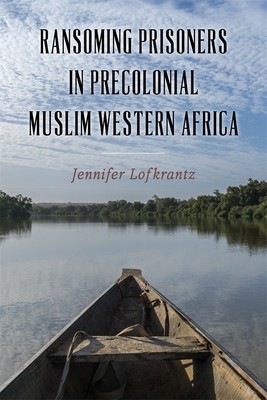
- We will send in 10–14 business days.
- Author: Jennifer Lofkrantz
- Publisher: University of Rochester Press
- ISBN-10: 1648250645
- ISBN-13: 9781648250644
- Format: 15.2 x 22.9 x 1.4 cm, kieti viršeliai
- Language: English
- SAVE -10% with code: EXTRA
Ransoming Prisoners in Precolonial Muslim Western Africa (e-book) (used book) | bookbook.eu
Reviews
Description
Examines African debates on captivity, legal and illegal enslavement, and religious and ethnic identity in the era of West African jihads.
This study, the first to cover ransoming in African regions south of the Sahara, ranges over a broad temporal and geographical area-from the fifteenth to the nineteenth centuries and including present-day Mali, Niger, Nigeria, and Morocco. It focuses particularly on the nineteenth-century jihad era and on the Sokoto Caliphate and the Umarian States. The overall period was a time of intense intellectual debate over the questions of who was and who was not a Muslim, how Islamic law could and should be implemented, what rights and protections recognized freeborn Muslims should have, and what role governments should play in ensuring those rights especially during a time when slavery was legal. Ransoming discourses and procedures expose Muslim West African answers to these questions as well as providing a lens on broader issues and ideas on slavery, freedom, and religious and ethnic identity. Based on research conducted mostly in Mali, Niger, Nigeria, and France and on Arabic-, French-, and English-language archival sources, treatises, personal correspondence, oral sources and testimony, biographical data, travel reports, and early colonial documents, this study approaches the question of ransoming of captives through an examination, first, of intellectual debates amongst pre-nineteenth-century West African scholars on issues of ransoming; second, of nineteenth-century policies based on understandings of those intellectual debates in the context of the jihads; and, finally, of West African practices of ransoming in the nineteenth century.EXTRA 10 % discount with code: EXTRA
The promotion ends in 23d.18:47:42
The discount code is valid when purchasing from 10 €. Discounts do not stack.
- Author: Jennifer Lofkrantz
- Publisher: University of Rochester Press
- ISBN-10: 1648250645
- ISBN-13: 9781648250644
- Format: 15.2 x 22.9 x 1.4 cm, kieti viršeliai
- Language: English English
Examines African debates on captivity, legal and illegal enslavement, and religious and ethnic identity in the era of West African jihads.
This study, the first to cover ransoming in African regions south of the Sahara, ranges over a broad temporal and geographical area-from the fifteenth to the nineteenth centuries and including present-day Mali, Niger, Nigeria, and Morocco. It focuses particularly on the nineteenth-century jihad era and on the Sokoto Caliphate and the Umarian States. The overall period was a time of intense intellectual debate over the questions of who was and who was not a Muslim, how Islamic law could and should be implemented, what rights and protections recognized freeborn Muslims should have, and what role governments should play in ensuring those rights especially during a time when slavery was legal. Ransoming discourses and procedures expose Muslim West African answers to these questions as well as providing a lens on broader issues and ideas on slavery, freedom, and religious and ethnic identity. Based on research conducted mostly in Mali, Niger, Nigeria, and France and on Arabic-, French-, and English-language archival sources, treatises, personal correspondence, oral sources and testimony, biographical data, travel reports, and early colonial documents, this study approaches the question of ransoming of captives through an examination, first, of intellectual debates amongst pre-nineteenth-century West African scholars on issues of ransoming; second, of nineteenth-century policies based on understandings of those intellectual debates in the context of the jihads; and, finally, of West African practices of ransoming in the nineteenth century.

Reviews